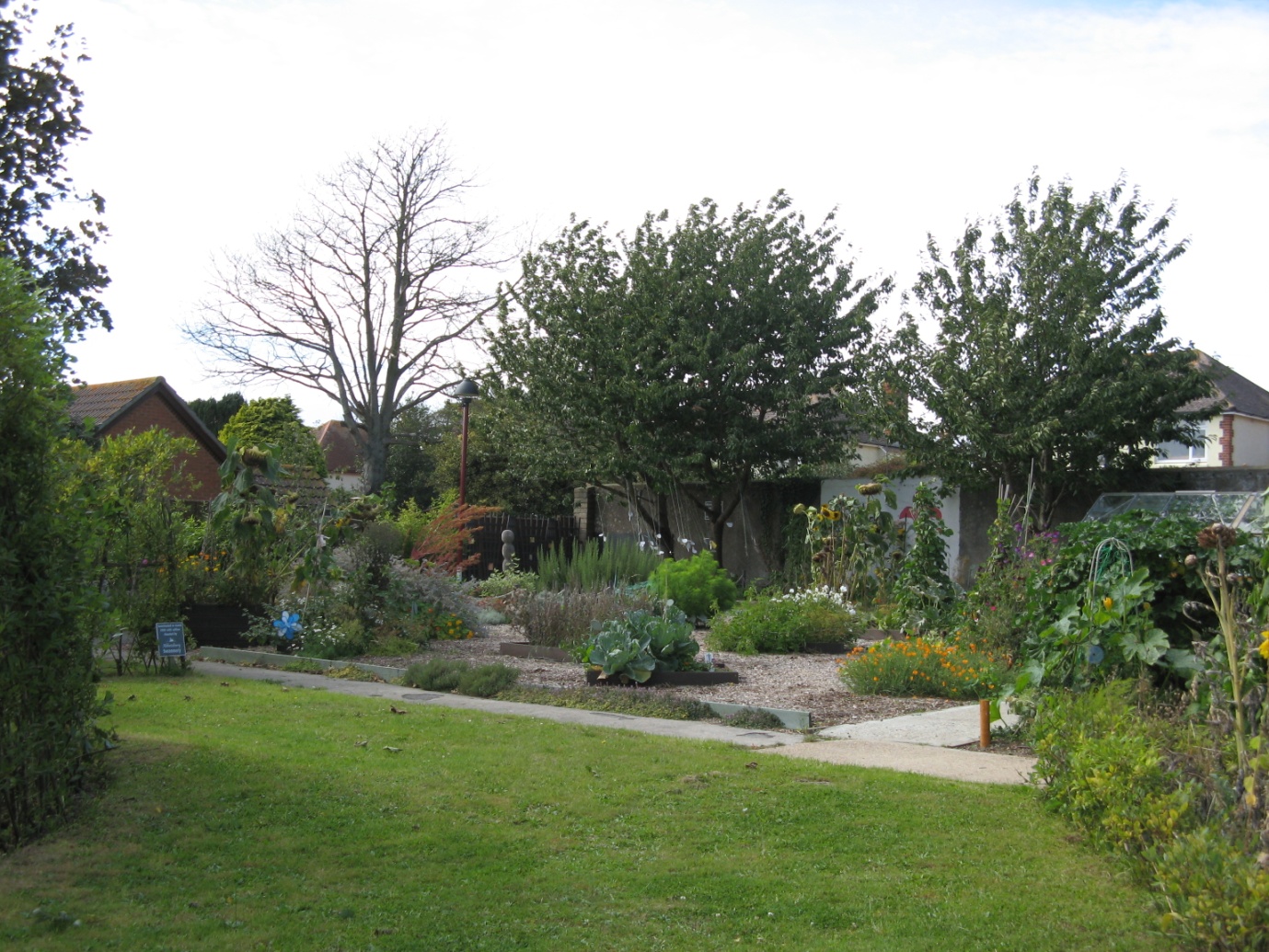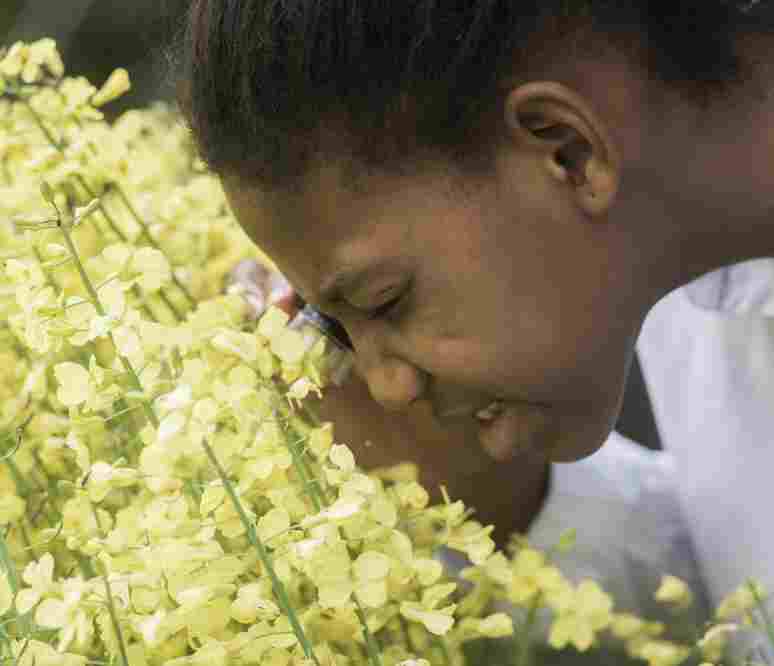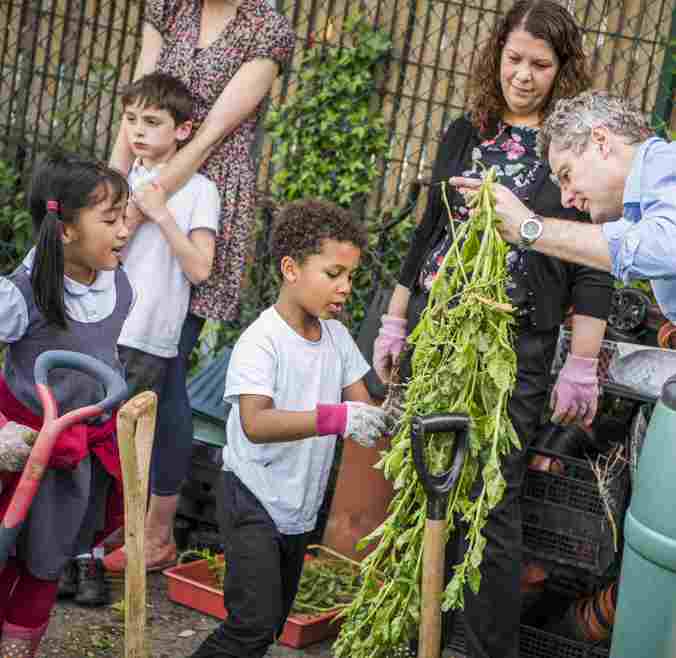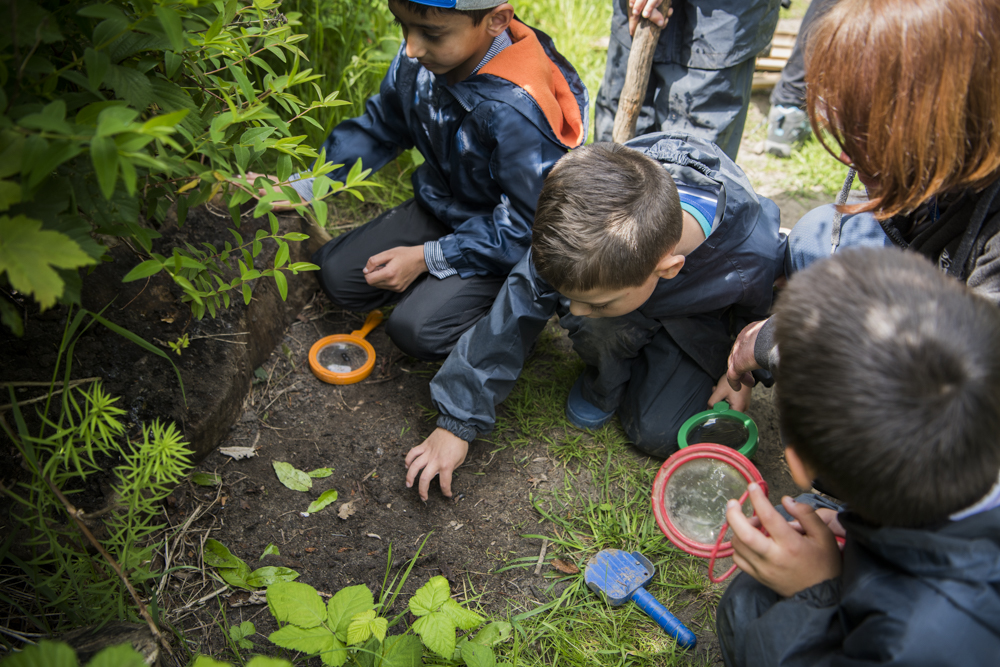- Home
- Public Benefits
- Gardening and people
- Introduction
Wildlife Gardening and Education
Although the bulk of the Wildlife Gardening Forum's work concerns ordinary private gardens and their significance for wildlife, from the beginning we have also been concerned with the health, social and especially education benefits of getting more "nature" into gardens, public space and school grounds. People cannot grow and develop healthily in modern nature-free environments, and we want to help policy makers understand these issues.
In our Manifesto we set out what we want to change:
• all children to have access to a garden rich in wildlife, at home and at school
• use gardens to give children a richer environment for learning and play
• help people value and enjoy wildlife in their gardens, encouraging a deeper appreciation of biodiversity and the
environment
Gardens are where many children make their first contact with the natural world. There is nothing more exciting for a small person than lying prone on the lawn, and watching ants busy about their inexplicable daily lives in the edge of the flower bed. Using their young-person's gift of close-up vision, they discover for themselves a new and extraordinary world that contains so much more than just boring people.
One of the best accounts of discovering nature in and around the garden was given by Chris Packham on "Desert Island Discs" in October 2013.
Wildlife Gardening and Schools
More and more schools are learning the benefits for education of outdoor learning and wildlife areas. Not only can this help in the obvious ways, with learning about wildlife and the environment, but a great deal of the national curriculum can be delivered more engagingly out of doors than in a boring classroom. Then we must add in the importance of creative adventurous play in children's development, and the stimulation to learning and concentration that the outdoors can provide.
We will be developing the schools resource on this website. If you would like to contribute ideas and case studies we would love to hear from you - contact us through the page here.
Click on the images below for more information.
Chris's Desert Island Discs recording is available here. The most relevant section starts at 7.20 minutes in.
You can read a transcript of part of the programme here.
Left: Chris Packham with Michaela Strachan (centre) and Martin Hughes-Games (right) at the Springwatch media launch, RSPB Minsmere
Activities and educational resources
Case studies
Grounds management for play and nature
Evidence base for engaging children with wildlife
Wildlife Gardening and Education
Although the bulk of the Wildlife Gardening Forum's work concerns ordinary private gardens and their significance for wildlife, from the beginning we have also been concerned with the health, social and especially education benefits of getting more "nature" into gardens, public space and school grounds. People cannot grow and develop healthily in modern nature-free environments, and we want to help policy makers understand these issues.
• all children to have access to a garden rich in wildlife, at home and at school
• use gardens to give children a richer environment for learning and play
• help people value and enjoy wildlife in their gardens, encouraging a deeper
appreciation of biodiversity and the environment
Gardens are where many children make their first contact with the natural world. There is nothing more exciting for a small person than lying prone on the lawn, and watching ants busy about their inexplicable daily lives in the edge of the flower bed. Using their young-person's gift of close-up vision, they discover for themselves a new and extraordinary world that contains so much more than just boring people.
One of the best accounts of discovering nature in and around the garden was given by Chris Packham on "Desert Island Discs" in October 2013.
Chris's Desert Island Discs recording is available here. The most relevant section starts at 7.20 minutes in.
Left: Chris Packham with Michaela Strachan (centre) and Martin Hughes-Games (right) at the Springwatch media launch, RSPB Minsmere
Wildlife Gardening and Schools
More and more schools are learning the benefits for education of outdoor learning and wildlife areas. Not only can this help in the obvious ways, with learning about wildlife and the environment, but a great deal of the national curriculum can be delivered more engagingly out of doors than in a boring classroom. Then we must add in the importance of creative adventurous play in children's development, and the stimulation to learning and concentration that the outdoors can provide.
We will be developing the schools resource on this website. If you would like to contribute ideas and case studies we would love to hear from you - contact us through the page here.
Click on the images below for more information.

Activities and educational resources
Evidence base for engaging children with wildlife
Grounds management for play and nature
Case studies
















